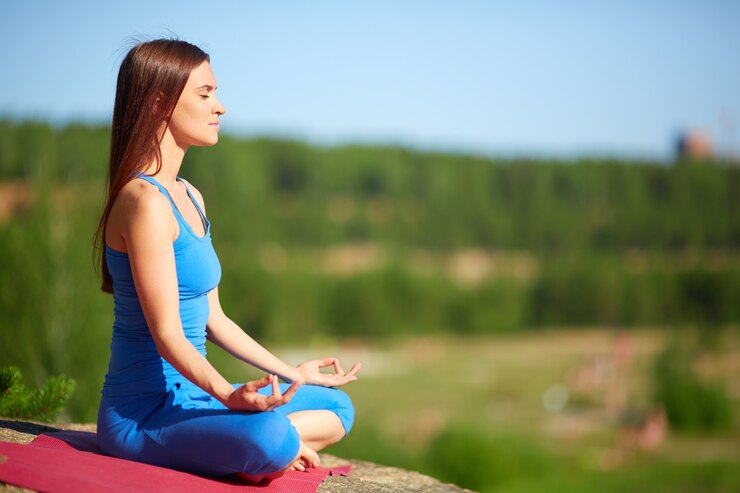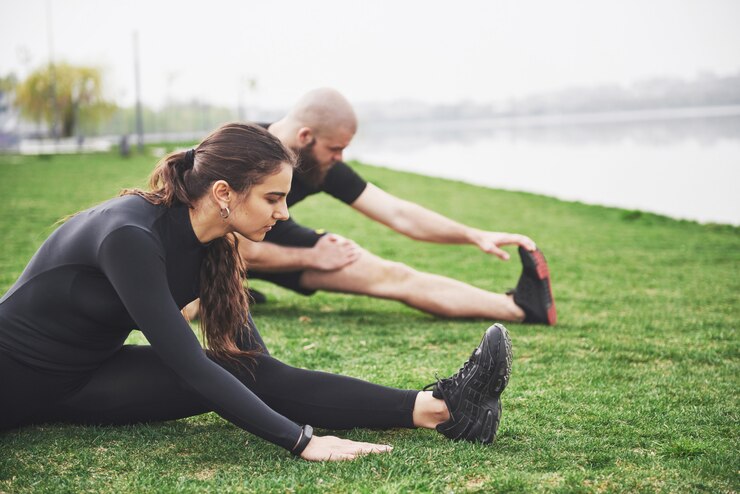
-
Introduction
Anxiety may be a powerful foe that disrupts our lives and robs us of our mental tranquility. However, it’s crucial to remember that anxiety is something you can overcome and regain control over. Our topic for discussion in this post is “10 Proven Ways to Overcome Anxiety and Take Back Your Mental Well-Being.” By putting these methods into practice, you can start on the path to a happier, calmer, and more balanced life.

2. Understanding Anxiety
It is essential to have a clear understanding of anxiety and its impact on individuals before exploring effective strategies to overcome it. Anxiety is a natural reaction to stress and can manifest in different ways, such as generalized anxiety disorder, social anxiety, or panic disorder. This condition often involves excessive worry, fear, and physical symptoms like an increased heart rate or sweaty palms. By comprehending the nature of anxiety and its diverse manifestations, we can better address and manage this common mental health issue. In order to effectively tackle anxiety, it is crucial to first grasp its definition and the ways it affects individuals. Anxiety is a natural response to stress and can take on various forms, including generalized anxiety disorder, social anxiety, and panic disorder. It frequently involves excessive worry, fear, and physical symptoms like a racing heart or sweaty palms. By gaining a comprehensive understanding of anxiety and its diverse presentations, we can then proceed to explore proven methods to overcome this condition and improve overall well-being.
3. Proven Ways to Overcome Anxiety
Now, let’s explore ten proven methods to manage and conquer anxiety effectively:

4.1. Mindfulness Meditation
Mindfulness meditation is a technique that promotes being fully present in the moment without any judgment towards your thoughts, feelings, or sensations. By regularly practicing this technique, you can increase your self-awareness and break free from the cycle of worrying about the past or future. The practice of mindfulness meditation encourages you to observe your thoughts and emotions without getting caught up in them. This allows you to develop a greater sense of clarity and perspective, which can help you make better decisions and respond more effectively to challenging situations. Additionally, by focusing on the present moment, you can reduce stress and anxiety and cultivate a greater sense of calm and inner peace.

4.2. Deep Breathing Exercises
One effective technique for managing anxiety is through the use of deep breathing exercises. These exercises are simple to learn and can be highly effective in reducing physical symptoms of anxiety and calming the nervous system. By taking slow, deep breaths in through the nose and out through the mouth, individuals can learn to regulate their breathing and reduce feelings of anxiety. Deep breathing exercises are a valuable tool for anyone looking to manage their anxiety. They can be practiced anywhere and at any time, making them a convenient and accessible option for those who may be experiencing anxiety in a variety of settings. By incorporating deep breathing exercises into their daily routine, individuals can learn to manage their anxiety more effectively and improve their overall well-being.
4.3. Cognitive-Behavioral Therapy (CBT)
Cognitive therapy (CBT) is a therapy approach supported by empirical evidence, aimed at recognizing and modifying detrimental thought patterns and behaviors that contribute to the experience of anxiety. This therapeutic method can be facilitated by a professional therapist or utilized through self-help resources and applications.

4.4. Regular Exercise
Engaging in physical activity has the remarkable ability to release endorphins, which are the body’s natural mood enhancers, while simultaneously decreasing the production of stress hormones. As a result, this process can effectively alleviate anxiety, thereby establishing exercise as a potent instrument for the management of mental well-being.
4.5. Balanced Diet
Your mental well-being can be influenced by the food you consume. Opting for whole foods like fruits, vegetables, whole grains, and lean proteins can supply your body with vital nutrients that aid in brain function and the regulation of mood. It is advisable to limit your intake of excessive caffeine and sugar, as they have the potential to worsen feelings of anxiety.

4.6. Adequate Sleep
It is crucial to prioritize getting sufficient and restful sleep to maintain optimal emotional well-being. Insufficient sleep can exacerbate feelings of anxiety, thereby impeding one’s ability to effectively manage stress. Striving for a consistent duration of 7-9 hours of high-quality sleep every night can significantly alleviate symptoms of anxiety.
4.7. Social Support
Expressing your emotions and ideas to close confidants and loved ones can offer a source of comfort and a feeling of inclusion. This can be a therapeutic occurrence, resulting in significant realizations and guidance. By sharing your innermost thoughts, you can gain a fresh perspective on your situation and receive constructive feedback from those who care about you. Opening up to those you trust can also help you feel less alone in your struggles. It can be reassuring to know that others have gone through similar experiences and can relate to your feelings. Additionally, receiving support from loved ones can boost your self-esteem and provide a sense of validation. Overall, sharing your thoughts and emotions with trusted individuals can be a powerful tool for personal growth and emotional well-being.
4.8. Time Management
To alleviate stress and anxiety, it is crucial to implement effective time management strategies. By creating a well-structured schedule, establishing priorities, and breaking down tasks into smaller, manageable steps, individuals can regain control over their responsibilities and minimize feelings of being overwhelmed.
4.9. Relaxation Techniques
In order to alleviate anxiety and promote a sense of calm, it may be beneficial to engage in relaxation techniques. These techniques may include progressive muscle relaxation, guided imagery, or aromatherapy. By practicing these methods, individuals may be able to effectively relax both their body and mind, ultimately reducing feelings of stress and anxiety.

4.10. Professional Help
If your anxiety is of a severe or chronic nature, it is advisable to consider seeking assistance from a therapist or psychiatrist who can offer professional help. These experts possess the knowledge and expertise to provide personalized treatment options, which may include the prescription of medication or the recommendation of more intensive therapy sessions. By consulting with a professional, individuals can receive the necessary support and guidance to effectively manage their anxiety and improve their overall well-being. In cases where anxiety is particularly severe or persistent, it is highly recommended to consult with a therapist or psychiatrist for professional assistance. These professionals are equipped to offer tailored treatment options that can address the specific needs of individuals experiencing such anxiety. Treatment may involve the prescription of medication or the provision of more intensive therapy sessions, both of which can significantly contribute to the management and alleviation of anxiety symptoms. Seeking help from a professional can provide individuals with the necessary tools and resources to effectively cope with their anxiety and enhance their overall quality of life.
5. Frequently Asked Questions (FAQs)
Let’s address some common questions about anxiety and its management:
Q1: Can anxiety be completely cured?
A1: While anxiety disorders can be effectively managed, complete and permanent cure is not guaranteed for everyone. However, with the right treatment and self-care, many individuals experience significant improvements and lead fulfilling lives.
Q2: Is medication the only solution for severe anxiety?
A2: Medication is one approach, but therapy, lifestyle changes, and self-help techniques can also be highly effective in treating severe anxiety. It’s best to consult with a mental health professional to determine the most suitable treatment plan.
Q3: How long does it take to see results with these strategies?
A3: The timeline for seeing results varies from person to person. Some may experience improvements within weeks, while others may take several months. Consistency and patience are key.
Q4: Are there natural remedies for anxiety?
A4: Yes, natural remedies like herbal supplements, yoga, and dietary changes can complement anxiety management strategies. However, consult a healthcare professional before trying any natural remedies, especially if you’re on medication.
6. Conclusion
Anxiety presents itself as a formidable obstacle, yet this blog post delves into 10 effective methods that have been proven to tackle this condition head-on. By implementing these strategies, you can embark on a path towards conquering anxiety and reclaiming tranquility. Whether you opt for mindfulness meditation, engage in physical activity, undergo therapy, or seek guidance from a professional, it is crucial to remember that you need not confront anxiety in isolation. There exists a glimmer of hope for a future that is less burdened by anxiety, and these approaches can serve as valuable tools on your quest for improved mental well-being.
If know more about Please visit : https://www.ramseysolutions.com/personal-growth/peace-of-mind
